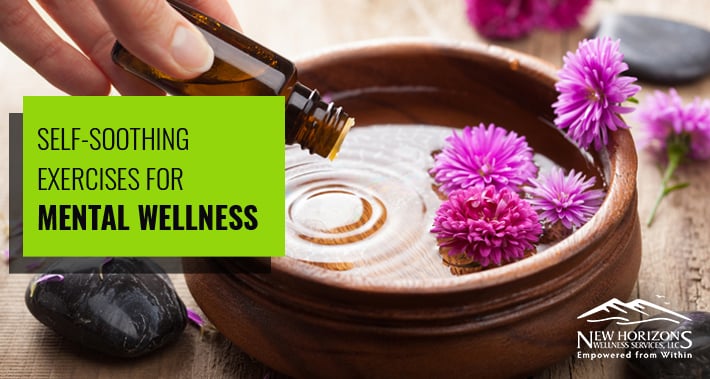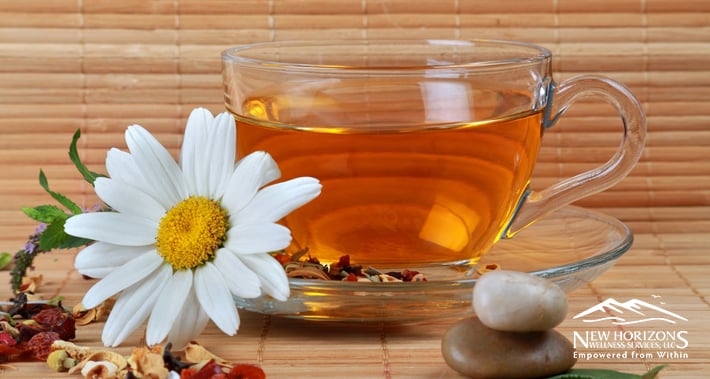
Self soothing is the process of learning how to calm yourself when dealing with stress triggers.
If you’re dealing with issues such as trauma, depression, and anxiety it’s always a good idea to seek out extra support through mental health counseling.
On top of seeking out support, you may want to work on some self directed coping techniques.
When dealing with a sensitivity to stress triggers, you can’t always predict when you’ll feel overwhelmed, and a counselor may not always be readily available.
This is where self soothing can be beneficial.
These techniques are simple and easy to do at any time or any place.
Curious to learn more about self soothing techniques?
Read on below.
Why Is Self Soothing So Important?
Self soothing is an important component in learning how to regulate your emotional responses and sleep patterns.
For example, when you’re processing trauma, and symptoms of PTSD, you can have memories resurface at any time.
Out in public, the smell of a stranger’s cologne could trigger a stressful memory and when you’re processing those emotions it can lead to a panic response in your body.
When you’re dealing with anxiety and depression someone could unknowingly make a comment that’s a trigger for you.
Seeking out support is essential in working through your triggers, however, in most cases, a counselor can’t be by your side at all times.
Self soothing techniques will help you feel comfort when that support isn’t able to be instantaneous.
Even with trauma, there are aspects of your life that you have to be present for, and self soothing skills can help you manage your emotions when it feels difficult.
Is Self Soothing A Replacement For Therapy?
Though it’s extremely helpful to develop self soothing skills, they are absolutely not a replacement for therapy.
These techniques are to be used in tandem with a proper mental health support plan.
Much like how a granola bar may hold you over in between meals, you wouldn’t want to only eat granola bars.
Snacks are not a healthy meal replacement, and self soothing is not a healthy replacement for therapy.
Use Your Senses For Self Soothing
Much like how traumas are deeply individual, self soothing practices can be very personal, what calms you may not work for someone else.
Below we’ve broken down self soothing techniques into their sense categories.
Remember that you have to be mindful and focus on these techniques while using them.
Listening to a zen soundtrack while reading a stressful news article, just isn’t going to work.
1. Taste
We don’t recommend always using food as a source of comfort, but there is something to using taste as a soothing and grounding tool.
Feeling hungry is linked to irritability and can lead to increased stress levels.
If you’re feeling triggered and hungry there’s no harm in having a comforting meal.
Try to incorporate healthy food into your comforting meals, as keeping a healthy body can help with maintaining a healthy mind.
To use taste as a comforting tool, without overindulging in junk food, try sipping a cup of herbal tea or sucking on hard candy.

2. Smell
Aromatherapy is often recommended as a natural aid for those who have issues with sleep, depression, stress, and anxiety.
Research has found that aromas have been linked to memory formation and stress reduction.
Smells are processed in the olfactory bulb, which is an area of the brain that sends out information from the front of the brain to the rest of the body’s central command.
Odors go from the olfactory bulb almost directly to the emotional and memory centers of the brain: the amygdala and the hippocampus.
Until the age of 10, your sense of smell is most developed of all senses.
Around the age of 10, sight takes over.
If you’re feeling overwhelmed try lighting a candle with a smell that reminds you of a positive time in your life.
Common relaxing scents are:
- Lavender
- Rose
- Vanilla
- Bergamot
- Orange
It’s a great idea to try recommended relaxing smells, and to explore what personal scents may work for you.
Scent can be a personal experience.
Maybe a whiff of your best friend’s perfume is what is relaxing to you, or a herb that’s used in one of your favorite dishes.
3. Sound
Ranging from sound effects to music, and positive verbal affirmations, sound can be a useful tool in self soothing.
Music therapy is an emerging recommendation for people dealing with stress, anxiety, and depression.
Music therapy can be one of the easiest self soothing techniques to explore, especially with how readily available music is to us
With your cell phone and headphones, you can pop on a relaxing song at any time.
You can also sing to yourself, or even make positive statements out loud to yourself.
If you’re more drawn towards being active in your self soothing, consider learning how to learn an instrument and creating your own music.
4. Touch
Touch is a dynamic tool for relaxation and stress relief.
Not only is your skin the largest organ in your body, but it’s also extremely sensitive to several kinds of stimuli.
You can soothe yourself through internal sensations, such as stretching, yoga, or tai chi.
Or you can seek external comfort through massages, pressure point touching, and even petting an animal.
Taking a few minutes to interact with an animal has been shown to lower levels of stress related hormones and to lower blood pressure.
Animal owners also report feeling higher levels of oxytocin and endorphins.
If you’re not a big lover of animals and yoga, you can also try out water as a source of touch based soothing.
Many people find that going for a swim or taking a warm bath will help them feel calm.
Warmth in general is a great sensation for self soothing.
You can feel more at ease by changing into comfortable clothes, and even by sunbathing.
However, you should always make sure that you’re wearing appropriate sunscreen for your area.
5. Sight
It’s very possible that you’ve been using sight to self soothe all along.
Things such as reading a good book, watching your favorite tv shows, and even daydreaming are all forms of sight lead soothing.
When your mind is focused on stress triggers, using a visual distraction can be helpful.
Psychologists have found that people with high anxiety levels tend to rewatch old tv shows, as a form of relaxation and perceived control, in times of high stress.
Watching old shows can be seen as a form of revisiting happy old memories, where you already know the outcome.
Some folks will keep pictures of their loved ones in their wallet or on their phones, so they can look at them for comfort.
Try keeping a couple of pictures on your phone that make you smile.
They can be of someone you love or something you just find funny.
Book An Appointment With New Horizons Wellness Services
If you’re curious about more methods of coping with stress and anxiety, feel free to contact us.
We’re more than happy to help.
Yours in Health,
New Horizons Wellness Services13333 SW 68th Pkwy,
Tigard, OR 97223
- https://g.page/newhws
New Horizons Wellness Services provides a true multidisciplinary approach to mental & physical health treatments for children, adults and families.
